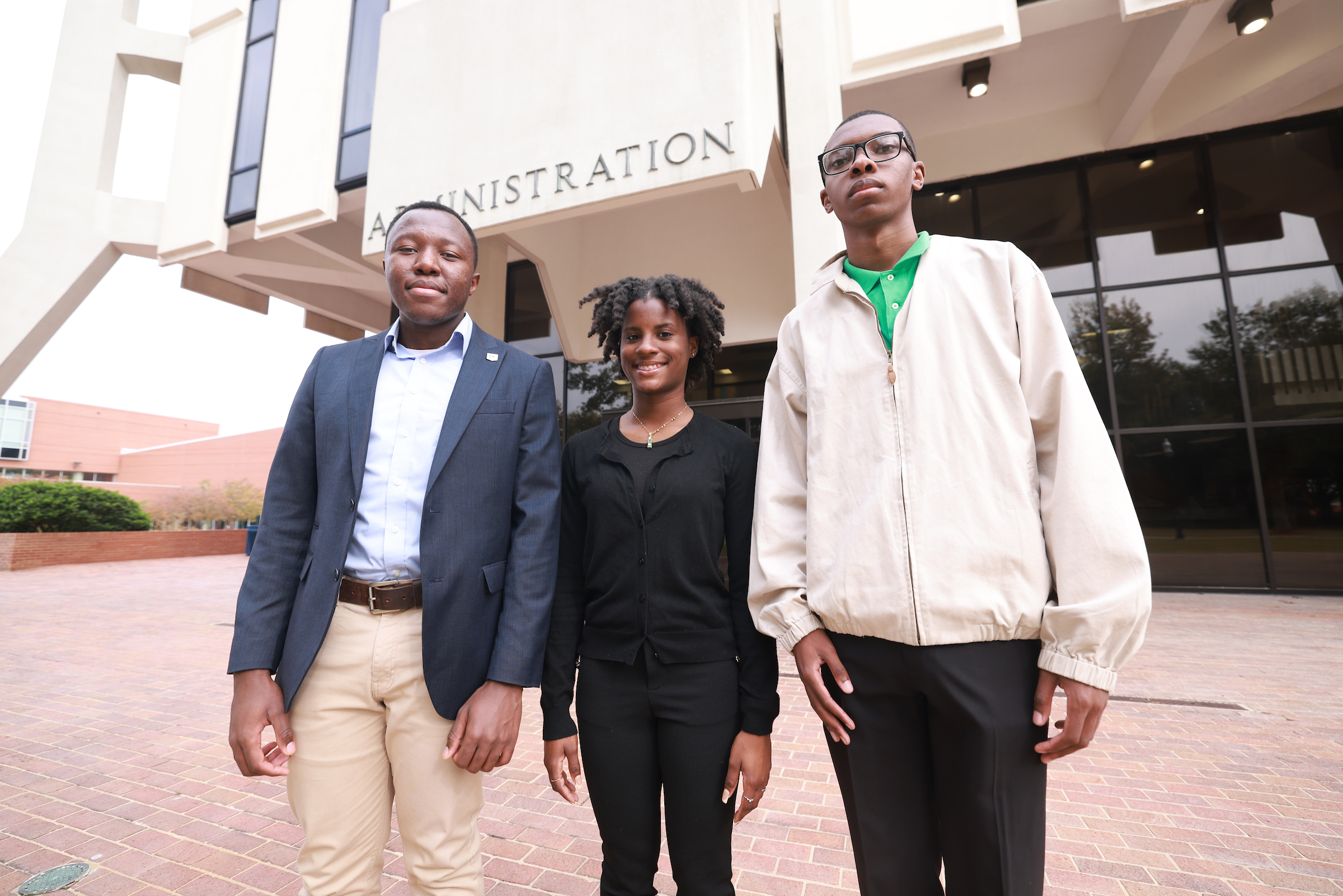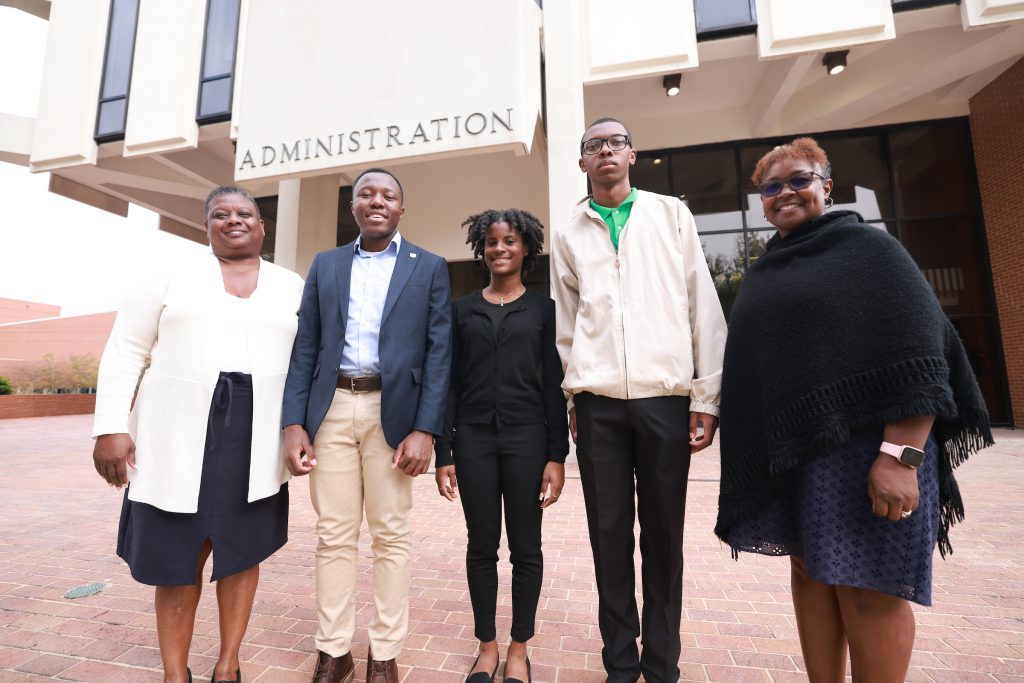
![]()
[hr]
Jackson State University (JSU) recently was selected to join the global community of design-centered change agents through the University Innovation Fellows (UIF) program sponsored by Stanford University’s Hasso Plattner Institute of Design.
The UIF program empowers student leaders across the globe to create opportunities to help their peers build the creative confidence, agency, and entrepreneurial mindset necessary to engage in the global challenges societies face today. Fellows are tasked with working collaboratively with university faculty and administrators to identify tangible issues and develop constructive yet creative programming that allows for students to advocate for long-lasting institutional change.
A dynamic team composed of three JSU sophomores, Mahlangu Nzunda, Alexandria Vassel-Thornton, and Patrick Clayborne, concentrated their fellowship research toward improving the campus ecosystem as it relates to student financial literacy, innovation, and overall career readiness. After surveying several demographics of students across campus, the team concluded that financial literacy was the most important component missing from post-graduation preparation.
Nzunda, a computer science major and exchange student from Lusaka, Zambia reflected on the process of determining the core issues surrounding the student experience and questioning the assumptions on how these issues are to be addressed in a long-lasting, effective manner.
“The UIF training program was a worthwhile experience in learning about design thinking and how to use it to solve problems, it was through this knowledge gained that we were able to assess and delve into the campus ecosystem to identify opportunities for improvement in students’ college experience,” said Nzunda. “We had to constantly revisit our ideas and test our assumptions, but to be able to come up with viable solutions and actionable steps was rewarding.”

Based on the research team’s findings, the most feasible pathway toward establishing institutional differences relies on identifying unique opportunities to intersect the academic needs of the students with the strategic goals of on-campus services. Additionally, the team looks forward to working collaboratively with on-campus centers such as the Center for Innovation, Entrepreneurship, and Economic Development (CIEED) in order to meet student expectations and simultaneously increase the visibility of on-campus services provided.
Vassel-Thornton, a sophomore computer science major and one third of the dynamic fellowship team representing JSU emphasized the importance of instilling into students the foundational knowledge necessary for understanding how to fully optimize and strategize around spending, investing, as well saving one’s financial assets.
“As University Innovation Fellows we aspire to increase the student body’s knowledge on topics surrounding financial literacy. These topics include how credit works and the benefits of it, how loans work(ways to minimize repayment), and other topics related to financial wellness,” said Vassel-Thorton.
In an effort to expand access to program opportunities, Stanford’s most recent financial investment strengthened pipeline access for students attending historically Black colleges and universities (HBCUs) to participate in the UIF program. Additionally, all program fees and associated participation expenses were paid in full through generous UIF donations.
“The new Fellows are designing experiences that help all students learn skills and mindsets necessary to navigate these uncertain times and to shape the future they want to see,” said Leticia Britos Cavagnaro, co-director of the University Innovation Fellows program. “They are giving back to their school communities, and at the same time, they’re learning strategies that will help them serve as leaders in their careers after graduation.”
Media Contact: Kyle Kidd, kyle.d.kidd-buckner@jsums.edu






